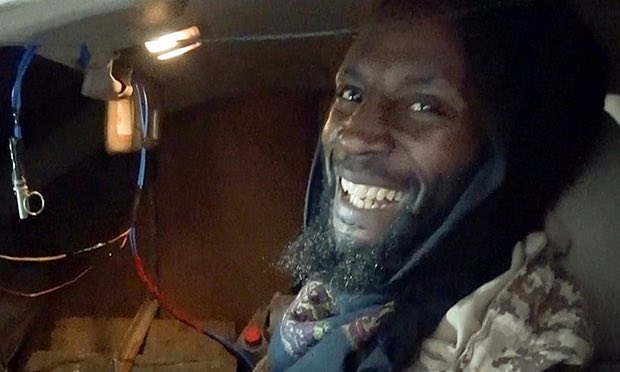British anti-terror policy 'failed to stop' UK-born IS suicide attacker

British counter-terrorism officials failed to adequately monitor a Manchester-born former Guantanamo Bay prisoner who last week blew himself up in Iraq in an Islamic State suicide attack, the government's former counter-terrorism strategist has said.
Ronald Fiddler, 50, who changed his name to Jamal al-Harith after converting to Islam in his 20s, died in the attack near Mosul on Monday.
Fiddler was captured in 2002 in Afghanistan, spent almost two years in Guantanamo and was released back to Britiain in 2004, before travelling to Syria 10 years later to join IS.
It is reported in British media he was paid more than $1m by the British government for mistreatment during his time in Guantanamo, with suggestions the cash was "hush money" to prevent national security issues being disclosed in any future court case.
Speaking on BBC radio on Wednesday, Arthur Snell, the former head of the government's counter-terrorism Prevent programme, said Fiddler had clearly not been sufficiently monitored in the years between his release and his move to Syria.
"It's obvious that collectively the authorities – and obviously I have some personal responsibility there – we failed to be aware of what Fiddler was up to," he said.
"Clearly there was a high-profile figure, there was no mystery about this man, he was someone known to the authorities.”
His death last week prompted British media to delve into Fiddler's past. The 50-year-old converted to Islam in his 20s and chose the name Jamal al-Harith, but most recently went by the nom de guerre Abu-Zakariya al-Britani.
Fiddler was taken to Guantanamo after capture in a prison in Afghanistan in 2002, where he was being held by the Taliban on suspicion of being a British spy. According to his sister, Maxine Fiddler, he initially thought the Americans were "his saviours”.
However, they believed he had tried to join the Taliban, and sent him to Guantanamo Bay. He was released in 2004 after lobbying by the then home secretary David Blunkett, who said that none of the British inmates at the US prison "will actually be a threat to the security of the British people”.
Fiddler was reportedly awarded compensation after claiming that British agents knew he had been mistreated in Guantanamo.
Lord Carlile, the former independent reviewer of terrorism legislation, told the BBC programme he believed Fiddler was paid to avoid disclosing sensitive national security material in court.
"It should have never been paid on the merits,” he said. "There was absolutely no merit in paying him a penny because plainly he was a terrorist and he was a potentially dangerous terrorist."
In 2014 and despite his high profile, Fiddler was able to travel to Syria.
Fiddler's wife told Channel 4 News the following year that she had also travelled to Syria with her children in a failed attempt to persuade him to come home.
The Foreign Office said: "The UK has advised for some time against all travel to Syria, and against all travel to large parts of Iraq.
"As all UK consular services are suspended in Syria and greatly limited in Iraq, it is extremely difficult to confirm the whereabouts and status of British nationals in these areas."
Stay informed with MEE's newsletters
Sign up to get the latest alerts, insights and analysis, starting with Turkey Unpacked
Middle East Eye delivers independent and unrivalled coverage and analysis of the Middle East, North Africa and beyond. To learn more about republishing this content and the associated fees, please fill out this form. More about MEE can be found here.




